Jane Lovering's Blog
July 26, 2018
WORKSHOP ALERT 08 SEPTEMBER 0930-1200
On Saturday 08 September, it will be the RNA York Afternoon Tea (1-5, Merchant Taylors' Hall, get your tickets now), and before that the delightful Rhoda Baxter and I will be holding a 'Plot Your Novel' workshop in Miller's Yard York. It will run from 9.30 to 12 (to give anyone wishing to time to dash across in time for the Afternoon Tea), and costs £30 per person.
Anyone who's been to one of our workshops before will know what to expect - tea, biscuits, a lot of laughs, and enough facts, charts and handouts to help you plan your next novel. We will cover character arcs, plot arcs, building your character, writing an eye-catching beginning - and basically anything else we are asked to cover!
This will all take place in the gorgeous, quiet little studio that is Miller's Yard, just off Gillygate in the middle(ish) of York. If you want to come but won't be attending the Afternoon Tea, there are lots of little cafes to explore afterwards. Plus, I think there are shops too, but I'm mostly interested in cafes, so.
People who've been to our workshops before and survived have found these helpful and generally quite amusing. Sometimes we even bake our own biscuits! Before the workshop, I mean, not during, because that would be odd.
So whether you are just setting out on your writing journey and want a few pointers, or are established and want a quick refresher to keep you on course, or are just ligging about in York at a loose end and fancy a giggle instead of hanging round the Marks and Spencer underwear department - do come along and join us!
You can email for further details through this website or find me on Facebook at https://www.facebook.com/jane.lovering or DM me on Twitter @JaneLovering, or even just shout very loudly through my letterbox.
In the meantime, here's a picture of a puppy.
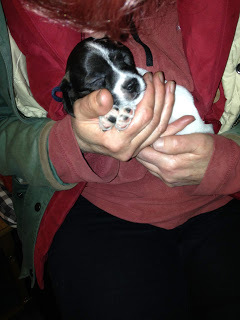
Anyone who's been to one of our workshops before will know what to expect - tea, biscuits, a lot of laughs, and enough facts, charts and handouts to help you plan your next novel. We will cover character arcs, plot arcs, building your character, writing an eye-catching beginning - and basically anything else we are asked to cover!
This will all take place in the gorgeous, quiet little studio that is Miller's Yard, just off Gillygate in the middle(ish) of York. If you want to come but won't be attending the Afternoon Tea, there are lots of little cafes to explore afterwards. Plus, I think there are shops too, but I'm mostly interested in cafes, so.
People who've been to our workshops before and survived have found these helpful and generally quite amusing. Sometimes we even bake our own biscuits! Before the workshop, I mean, not during, because that would be odd.
So whether you are just setting out on your writing journey and want a few pointers, or are established and want a quick refresher to keep you on course, or are just ligging about in York at a loose end and fancy a giggle instead of hanging round the Marks and Spencer underwear department - do come along and join us!
You can email for further details through this website or find me on Facebook at https://www.facebook.com/jane.lovering or DM me on Twitter @JaneLovering, or even just shout very loudly through my letterbox.
In the meantime, here's a picture of a puppy.

Published on July 26, 2018 01:13
July 1, 2018
Christmas. Cold, storms...my imagination only goes so far
This is torture and it happens to me every year.
I am writing a Christmas book. Now, I think the people of Britain should employ me to write Christmas books (although, I suppose, in a roundabout way, they actually are, because if they buy my book it's a bit like being employed by them. Just as long as they don't ask me to clean their windows or cook dinner or anything) because it seems that as soon as I start writing about Christmas the temperature climbs into the twenties and the sun is relentless.
Although I do have to admit I started this book (currently called The Discovery of Christmas, but that will no doubt change) it was November. It was cold.
 It felt proper Christmassy. Although on Christmas day it was actually sunny and dry but we won't talk about that.
It felt proper Christmassy. Although on Christmas day it was actually sunny and dry but we won't talk about that.
Now I am getting towards the end of the book. It's still Christmas in book world. Only a few weeks have passed booktimewise. However, here in the real world it's July, the sun is beaming down, even the dog won't go out in the garden and my butter has melted.
 If you look closely, you can see my butter meltingSo here I am, trying hard to conjure the image of storm lashed coastline, a bare house with sleet pelting the windows as two people huddle up against the cooker to keep warm. With all my windows open and the dog belly-up on my feet.
If you look closely, you can see my butter meltingSo here I am, trying hard to conjure the image of storm lashed coastline, a bare house with sleet pelting the windows as two people huddle up against the cooker to keep warm. With all my windows open and the dog belly-up on my feet.
It's unfair. I spent the last seven months absolutely frozen and now I need to imagine 'absolutely frozen' it's bikini weather. I bet if I suddenly send my leading couple to a desert island, the rain will cascade down and not stop for a fortnight. So, if any farmers would like to sponsor my writing, I will gladly adjust my book settings in order to bring forth whatever weather they desire.
My next book is set back in Yorkshire in a damp spring. So, be prepared for next spring to be the driest on record, will you?
I am writing a Christmas book. Now, I think the people of Britain should employ me to write Christmas books (although, I suppose, in a roundabout way, they actually are, because if they buy my book it's a bit like being employed by them. Just as long as they don't ask me to clean their windows or cook dinner or anything) because it seems that as soon as I start writing about Christmas the temperature climbs into the twenties and the sun is relentless.
Although I do have to admit I started this book (currently called The Discovery of Christmas, but that will no doubt change) it was November. It was cold.
 It felt proper Christmassy. Although on Christmas day it was actually sunny and dry but we won't talk about that.
It felt proper Christmassy. Although on Christmas day it was actually sunny and dry but we won't talk about that.Now I am getting towards the end of the book. It's still Christmas in book world. Only a few weeks have passed booktimewise. However, here in the real world it's July, the sun is beaming down, even the dog won't go out in the garden and my butter has melted.
 If you look closely, you can see my butter meltingSo here I am, trying hard to conjure the image of storm lashed coastline, a bare house with sleet pelting the windows as two people huddle up against the cooker to keep warm. With all my windows open and the dog belly-up on my feet.
If you look closely, you can see my butter meltingSo here I am, trying hard to conjure the image of storm lashed coastline, a bare house with sleet pelting the windows as two people huddle up against the cooker to keep warm. With all my windows open and the dog belly-up on my feet.It's unfair. I spent the last seven months absolutely frozen and now I need to imagine 'absolutely frozen' it's bikini weather. I bet if I suddenly send my leading couple to a desert island, the rain will cascade down and not stop for a fortnight. So, if any farmers would like to sponsor my writing, I will gladly adjust my book settings in order to bring forth whatever weather they desire.
My next book is set back in Yorkshire in a damp spring. So, be prepared for next spring to be the driest on record, will you?
Published on July 01, 2018 05:28
June 17, 2018
Building yourself a hero
Do you have a constant procession of imaginary people walking through your life?
Annoying, isn't it? When you start to feel that they are better than your real friends (well, of course they are, they do everything they are told!), more amenable, probably richer and better looking too, unless your real friends are - I dunno - the Beckhams or something. Because imaginary people have to be like real people, only more so.
Now I'm here to talk about heroes in books, particularly in romantic fiction (because those are the books wot I write, and therefore I have a vague idea what goes into them).
The men can't just be normal men; ok most of the time, bit crap at helping with the housework, fairly clueless when you are upset but basically decent. No. They have to have hair of ebony, eyes like liquid chocolate, muscles that fill their clothes out and generally they smell of something luscious and exotic, like lemons and cold air. They are always empathic, touchy-feely, as full of hugs as a HobNob is full of crunch. They are, not to put too fine a point on it, sickening. If they have a flaw it will be one that makes them that little bit more attractive - they will be devoted to the memory of their dead wife, or single-minded in their pursuit of the life that they want (and the heroine).
 Like this. Only with a puppy in one hand, a bunch of flowers for his mum in the other, and a tea towel over his shoulder.
Like this. Only with a puppy in one hand, a bunch of flowers for his mum in the other, and a tea towel over his shoulder.
If they have a physical flaw, like a scar or a missing limb, it will have been sustained rescuing orphans from a housefire, being caught in crossfire whilst serving in a military unit somewhere troubled or saving a puppy from a runaway vehicle. It won't, for example, have been sustained falling downstairs while catastrophically drunk. Because your average hero doesn't get drunk, unless he's drinking to forget his (equally picturesque) sorrows. He doesn't overdo it at a party, walk into a lampost, sustaining a nasty cut to the forehead which scars in an unpleasantly puckered way, and then spend the rest of his night with his head down the toilet. No! For he is a Romance Hero...
So. When you come to Build Yourself a Man (can I recommend putting the eyeballs in last?) consider not just the muscles, they way his thighs bulge in his jeans, his sparkling eyes, the way he loves his mother, his dog and his job and how fabulous he is at everything he does. Consider, instead, making sure that he feels REAL to your reader. Even readers who are reading for the pure escapism and want their heroes to be billionaire sex-gods with biceps of iron, designer suits and an orphaned niece who needs bringing up, want a hint of believability in this man. They want to think that they just might run into him (or his poorer, slightly less muscly and dressed in Top Man younger brother) down their High Street on a Saturday night. They need a thread of believability running through their general Weave of Perfection.
Give him something he's bad at. Whilst a man being good at something is ineffably sexy, a man who isn't afraid to admit his imperfections is just as sexy. Show him making mistakes (and putting them right). Yes, he can be attractive, but he has to feel attainable.
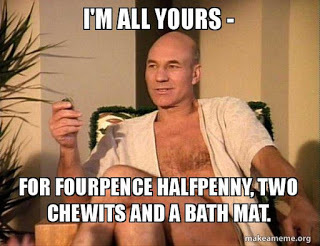 Okay, maybe not THAT attainable.
Okay, maybe not THAT attainable.
Annoying, isn't it? When you start to feel that they are better than your real friends (well, of course they are, they do everything they are told!), more amenable, probably richer and better looking too, unless your real friends are - I dunno - the Beckhams or something. Because imaginary people have to be like real people, only more so.
Now I'm here to talk about heroes in books, particularly in romantic fiction (because those are the books wot I write, and therefore I have a vague idea what goes into them).
The men can't just be normal men; ok most of the time, bit crap at helping with the housework, fairly clueless when you are upset but basically decent. No. They have to have hair of ebony, eyes like liquid chocolate, muscles that fill their clothes out and generally they smell of something luscious and exotic, like lemons and cold air. They are always empathic, touchy-feely, as full of hugs as a HobNob is full of crunch. They are, not to put too fine a point on it, sickening. If they have a flaw it will be one that makes them that little bit more attractive - they will be devoted to the memory of their dead wife, or single-minded in their pursuit of the life that they want (and the heroine).
 Like this. Only with a puppy in one hand, a bunch of flowers for his mum in the other, and a tea towel over his shoulder.
Like this. Only with a puppy in one hand, a bunch of flowers for his mum in the other, and a tea towel over his shoulder.If they have a physical flaw, like a scar or a missing limb, it will have been sustained rescuing orphans from a housefire, being caught in crossfire whilst serving in a military unit somewhere troubled or saving a puppy from a runaway vehicle. It won't, for example, have been sustained falling downstairs while catastrophically drunk. Because your average hero doesn't get drunk, unless he's drinking to forget his (equally picturesque) sorrows. He doesn't overdo it at a party, walk into a lampost, sustaining a nasty cut to the forehead which scars in an unpleasantly puckered way, and then spend the rest of his night with his head down the toilet. No! For he is a Romance Hero...
So. When you come to Build Yourself a Man (can I recommend putting the eyeballs in last?) consider not just the muscles, they way his thighs bulge in his jeans, his sparkling eyes, the way he loves his mother, his dog and his job and how fabulous he is at everything he does. Consider, instead, making sure that he feels REAL to your reader. Even readers who are reading for the pure escapism and want their heroes to be billionaire sex-gods with biceps of iron, designer suits and an orphaned niece who needs bringing up, want a hint of believability in this man. They want to think that they just might run into him (or his poorer, slightly less muscly and dressed in Top Man younger brother) down their High Street on a Saturday night. They need a thread of believability running through their general Weave of Perfection.
Give him something he's bad at. Whilst a man being good at something is ineffably sexy, a man who isn't afraid to admit his imperfections is just as sexy. Show him making mistakes (and putting them right). Yes, he can be attractive, but he has to feel attainable.
 Okay, maybe not THAT attainable.
Okay, maybe not THAT attainable.
Published on June 17, 2018 09:42
June 3, 2018
Quick, Quick, Slow...
I've had several reviews lately, describing the beginnings of my books as 'slow'. I don't have any problem with this, especially as the rest of the review has been stellar, but it did make me think.
Why do they say my books are slow, and is there anything I can do about it?
 This is my actual face as I asked the questionAnd then I sat down and though again, and I thought 'no. I understand why they say the beginnings of my books are 'slow'. And I'm not going to do anything about it...' This is why...
This is my actual face as I asked the questionAnd then I sat down and though again, and I thought 'no. I understand why they say the beginnings of my books are 'slow'. And I'm not going to do anything about it...' This is why...
You know that girl? The one you briefly met on a train once? Well, she's just madly in love with a bloke. Oh, I don't know which bloke, just a bloke. Anyway, she's madly in love with him, but there's a problem, because his sister hates the girl, you know, the first, girl, the one you met once on that train.
Do you care? Thought not. Okay, try this...
Your best friend, the one you've known since you were five, the one you've had loads of in-depth conversation with, whose hopes and fears you understand, the one you know inside out? Well, she's just met a man. And, you'll never guess, but he's that chap that you got friendly with over a coffee, the one who told you all about how afraid he is that he'll never find anyone to love him because of his background? It's him! And they are in love!
I bet you care a lot more about those two. About whether they get together, and the story of their relationship, because you know them. You know about the struggles they've faced and how much they both deserve their happy ending. The girl on the train, I mean, obviously, you hope she's happy too, but you can't get too invested in her romance, because you don't know anything about her. All you know is that she's pretty and she seems nice.
Now, there's a place for the first type of story, of course there is. And there are people who want to read it. People who want their couple to meet quickly, for there to be loads of intial attraction, but something that prevents the couple from getting together.
But that's not what I write. I write about the second kind of relationship. About characters you already know by the time they fall in love. Characters you are cheering on, because you know how hard their lives have been and how much they deserve their happy ending.
And that is why my stories have 'slow beginnings'. Because I think readers need to know the characters before they fall in love. Otherwise, why should they care?
 Because sloths are adorable, that's why...
Because sloths are adorable, that's why...
Why do they say my books are slow, and is there anything I can do about it?
 This is my actual face as I asked the questionAnd then I sat down and though again, and I thought 'no. I understand why they say the beginnings of my books are 'slow'. And I'm not going to do anything about it...' This is why...
This is my actual face as I asked the questionAnd then I sat down and though again, and I thought 'no. I understand why they say the beginnings of my books are 'slow'. And I'm not going to do anything about it...' This is why...You know that girl? The one you briefly met on a train once? Well, she's just madly in love with a bloke. Oh, I don't know which bloke, just a bloke. Anyway, she's madly in love with him, but there's a problem, because his sister hates the girl, you know, the first, girl, the one you met once on that train.
Do you care? Thought not. Okay, try this...
Your best friend, the one you've known since you were five, the one you've had loads of in-depth conversation with, whose hopes and fears you understand, the one you know inside out? Well, she's just met a man. And, you'll never guess, but he's that chap that you got friendly with over a coffee, the one who told you all about how afraid he is that he'll never find anyone to love him because of his background? It's him! And they are in love!
I bet you care a lot more about those two. About whether they get together, and the story of their relationship, because you know them. You know about the struggles they've faced and how much they both deserve their happy ending. The girl on the train, I mean, obviously, you hope she's happy too, but you can't get too invested in her romance, because you don't know anything about her. All you know is that she's pretty and she seems nice.
Now, there's a place for the first type of story, of course there is. And there are people who want to read it. People who want their couple to meet quickly, for there to be loads of intial attraction, but something that prevents the couple from getting together.
But that's not what I write. I write about the second kind of relationship. About characters you already know by the time they fall in love. Characters you are cheering on, because you know how hard their lives have been and how much they deserve their happy ending.
And that is why my stories have 'slow beginnings'. Because I think readers need to know the characters before they fall in love. Otherwise, why should they care?
 Because sloths are adorable, that's why...
Because sloths are adorable, that's why...
Published on June 03, 2018 10:34
May 22, 2018
Working with an editor. Or, not actively against one.
So, you've signed your contract, sent back the mermaid, and it's all gone quiet.
Make the most of it. Because soon it is going to get really REAL. Because the first thing your publisher is going to do is get an editor to go over your work.
 How editors look while they are reading your bookNow, do you remember all those things I told you about dealing with rejection? Go and practice them. Because you are about to get something called an Editorial Report on your manuscript, and it will cause you to experience Going Full Tea Towel all over again. Also stock up on biscuits (it's hard to swear with a mouthful of HobNobs, at least, it isn't hard but nobody can tell what you are saying, so you get away with more), wine and clean pyjamas, because nothing much is going to get done for the foreseeable future, and as long as you have wine, HobNobs and clean pyjamas you are going to be fine. Or, maybe not fine, as such, but you will be fed, drunk and not smell, so that's all good.
How editors look while they are reading your bookNow, do you remember all those things I told you about dealing with rejection? Go and practice them. Because you are about to get something called an Editorial Report on your manuscript, and it will cause you to experience Going Full Tea Towel all over again. Also stock up on biscuits (it's hard to swear with a mouthful of HobNobs, at least, it isn't hard but nobody can tell what you are saying, so you get away with more), wine and clean pyjamas, because nothing much is going to get done for the foreseeable future, and as long as you have wine, HobNobs and clean pyjamas you are going to be fine. Or, maybe not fine, as such, but you will be fed, drunk and not smell, so that's all good.
Oddly enough, because the publishers have bought your book (remember, you signed the contract whilst extracting tights from the dog?) the first thing they want to do is change it. Okay, they aren't changing it because it's not good, or they had a quick whim that they wanted a book that was almost exactly like yours only completely different, but they are changing it because they think it will be better done a different way. Or with more characters. Or less. Or located in Dorset. Enid Blyton's 'Five Go To Smuggler's Top' was originally called 'Four Go To Hayling Island' before the editors got their hands on it, you know.
 Except none of the editors knew where Hayling Island was, so it had to go... And you will look upon your editor's words, ye mighty author, and you will despair. Oh boy will you despair. This is where the swearing comes in, by the way. Because you will find yourself looking at lots of comments like 'I love this bit, but why does she say.........?' You remember writing that bit and laughing like a drain at your heroine's witty comeback, but you are now forced to realise that nobody else understands why it's witty. Just because the phrase 'no, you're a banana!' makes you roll around slapping your thigh and giggling, doesn't mean that anyone else is going to find it amusing. Remember - if you have to explain a joke, it isn't funny.
Except none of the editors knew where Hayling Island was, so it had to go... And you will look upon your editor's words, ye mighty author, and you will despair. Oh boy will you despair. This is where the swearing comes in, by the way. Because you will find yourself looking at lots of comments like 'I love this bit, but why does she say.........?' You remember writing that bit and laughing like a drain at your heroine's witty comeback, but you are now forced to realise that nobody else understands why it's witty. Just because the phrase 'no, you're a banana!' makes you roll around slapping your thigh and giggling, doesn't mean that anyone else is going to find it amusing. Remember - if you have to explain a joke, it isn't funny.
In essence, your editor is going to make you rework your book. It's going to be like doing the ironing. Hopefully it won't be more than smoothing out a few creases and getting the corners to lie flat, but it might be the literary equivalent of putting the pleats in a kilt and 101 Ways with a Lace Collar.
 I've never ironed anything, but I understand this is a suitable analogy. Don't be afraid to stand up and tell your editor that you can't pleat that way because it will affect the way your sporran hangs later in the story, but do be guided by them when it comes to the book version of the Fitted Sheet. They know what works. Take their advice.
I've never ironed anything, but I understand this is a suitable analogy. Don't be afraid to stand up and tell your editor that you can't pleat that way because it will affect the way your sporran hangs later in the story, but do be guided by them when it comes to the book version of the Fitted Sheet. They know what works. Take their advice.
Oh, and don't turn your editing iron up too hot. Nobody wants a melted plot device.
Make the most of it. Because soon it is going to get really REAL. Because the first thing your publisher is going to do is get an editor to go over your work.
 How editors look while they are reading your bookNow, do you remember all those things I told you about dealing with rejection? Go and practice them. Because you are about to get something called an Editorial Report on your manuscript, and it will cause you to experience Going Full Tea Towel all over again. Also stock up on biscuits (it's hard to swear with a mouthful of HobNobs, at least, it isn't hard but nobody can tell what you are saying, so you get away with more), wine and clean pyjamas, because nothing much is going to get done for the foreseeable future, and as long as you have wine, HobNobs and clean pyjamas you are going to be fine. Or, maybe not fine, as such, but you will be fed, drunk and not smell, so that's all good.
How editors look while they are reading your bookNow, do you remember all those things I told you about dealing with rejection? Go and practice them. Because you are about to get something called an Editorial Report on your manuscript, and it will cause you to experience Going Full Tea Towel all over again. Also stock up on biscuits (it's hard to swear with a mouthful of HobNobs, at least, it isn't hard but nobody can tell what you are saying, so you get away with more), wine and clean pyjamas, because nothing much is going to get done for the foreseeable future, and as long as you have wine, HobNobs and clean pyjamas you are going to be fine. Or, maybe not fine, as such, but you will be fed, drunk and not smell, so that's all good.Oddly enough, because the publishers have bought your book (remember, you signed the contract whilst extracting tights from the dog?) the first thing they want to do is change it. Okay, they aren't changing it because it's not good, or they had a quick whim that they wanted a book that was almost exactly like yours only completely different, but they are changing it because they think it will be better done a different way. Or with more characters. Or less. Or located in Dorset. Enid Blyton's 'Five Go To Smuggler's Top' was originally called 'Four Go To Hayling Island' before the editors got their hands on it, you know.
 Except none of the editors knew where Hayling Island was, so it had to go... And you will look upon your editor's words, ye mighty author, and you will despair. Oh boy will you despair. This is where the swearing comes in, by the way. Because you will find yourself looking at lots of comments like 'I love this bit, but why does she say.........?' You remember writing that bit and laughing like a drain at your heroine's witty comeback, but you are now forced to realise that nobody else understands why it's witty. Just because the phrase 'no, you're a banana!' makes you roll around slapping your thigh and giggling, doesn't mean that anyone else is going to find it amusing. Remember - if you have to explain a joke, it isn't funny.
Except none of the editors knew where Hayling Island was, so it had to go... And you will look upon your editor's words, ye mighty author, and you will despair. Oh boy will you despair. This is where the swearing comes in, by the way. Because you will find yourself looking at lots of comments like 'I love this bit, but why does she say.........?' You remember writing that bit and laughing like a drain at your heroine's witty comeback, but you are now forced to realise that nobody else understands why it's witty. Just because the phrase 'no, you're a banana!' makes you roll around slapping your thigh and giggling, doesn't mean that anyone else is going to find it amusing. Remember - if you have to explain a joke, it isn't funny.In essence, your editor is going to make you rework your book. It's going to be like doing the ironing. Hopefully it won't be more than smoothing out a few creases and getting the corners to lie flat, but it might be the literary equivalent of putting the pleats in a kilt and 101 Ways with a Lace Collar.
 I've never ironed anything, but I understand this is a suitable analogy. Don't be afraid to stand up and tell your editor that you can't pleat that way because it will affect the way your sporran hangs later in the story, but do be guided by them when it comes to the book version of the Fitted Sheet. They know what works. Take their advice.
I've never ironed anything, but I understand this is a suitable analogy. Don't be afraid to stand up and tell your editor that you can't pleat that way because it will affect the way your sporran hangs later in the story, but do be guided by them when it comes to the book version of the Fitted Sheet. They know what works. Take their advice.Oh, and don't turn your editing iron up too hot. Nobody wants a melted plot device.
Published on May 22, 2018 12:50
May 14, 2018
Your first moments as a writer, probably mermaid-free.
Now that you are about to become a fully fledged author (or are thinking about it, or even if you aren't you are reading this, so you must be mildly interested), you may think that signing that first contract for publication will be the high point of your career.
Well, it might. But, on the other hand, it is almost certain that the contract will arrive by email, you will have to print it out and then sign and post it back. It will not - contrary to what you may imagine - be hand delivered by mermaids on unicorns. Actually, a mermaid probably wouldn't be able to ride a unicorn, when you think about it, she'd just keep sliding off. Even sidesaddle wouldn't help, because you have to sort of cock one leg over the top of the other, and a mermaid hasn't got any legs to cock.
 I think we can all see that this isn't going to work, can't we?So, whilst it might be a nice idea that just results in a faceful of pavement for your mermaid and a unicorn galloping unrestrained around your local streets, you are probably not going to have this problem.
I think we can all see that this isn't going to work, can't we?So, whilst it might be a nice idea that just results in a faceful of pavement for your mermaid and a unicorn galloping unrestrained around your local streets, you are probably not going to have this problem.
Almost positively, the day your contract comes by email will be the day the dog swallows a pair of tights, a child comes down with an illness you are sure is chicken pox, there will be Marmite all over the kitchen and a strange smell behind the fridge. You won't have seen the cat for three days, the TV remote will have vanished and there will be a letter from the bank that has a tint of red around the edges.
You will print out the contract with one hand whilst on the phone to the vet with the other. With your third hand you will take the temperature of the ill child. When you finally sign and return the contract, you will be so distracted that it will hardly even register. And your pen will probably run out half way through, so part of your signature will be done in green pen, because it will be the only one you can find that works, but will make you look as though you forgot your own name part way through.
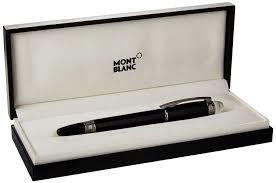 You will have had a lovely pen all ready for this momentous..errr...moment, but you'll forget all about it when the time comes. You'll probably be so distracted that you will post the contract back without a stamp.
You will have had a lovely pen all ready for this momentous..errr...moment, but you'll forget all about it when the time comes. You'll probably be so distracted that you will post the contract back without a stamp.
Don't worry. The rest of your writing career will consist of moments like this all joined together, so you might as well start as you mean to go on.
Well, it might. But, on the other hand, it is almost certain that the contract will arrive by email, you will have to print it out and then sign and post it back. It will not - contrary to what you may imagine - be hand delivered by mermaids on unicorns. Actually, a mermaid probably wouldn't be able to ride a unicorn, when you think about it, she'd just keep sliding off. Even sidesaddle wouldn't help, because you have to sort of cock one leg over the top of the other, and a mermaid hasn't got any legs to cock.
 I think we can all see that this isn't going to work, can't we?So, whilst it might be a nice idea that just results in a faceful of pavement for your mermaid and a unicorn galloping unrestrained around your local streets, you are probably not going to have this problem.
I think we can all see that this isn't going to work, can't we?So, whilst it might be a nice idea that just results in a faceful of pavement for your mermaid and a unicorn galloping unrestrained around your local streets, you are probably not going to have this problem.Almost positively, the day your contract comes by email will be the day the dog swallows a pair of tights, a child comes down with an illness you are sure is chicken pox, there will be Marmite all over the kitchen and a strange smell behind the fridge. You won't have seen the cat for three days, the TV remote will have vanished and there will be a letter from the bank that has a tint of red around the edges.
You will print out the contract with one hand whilst on the phone to the vet with the other. With your third hand you will take the temperature of the ill child. When you finally sign and return the contract, you will be so distracted that it will hardly even register. And your pen will probably run out half way through, so part of your signature will be done in green pen, because it will be the only one you can find that works, but will make you look as though you forgot your own name part way through.
 You will have had a lovely pen all ready for this momentous..errr...moment, but you'll forget all about it when the time comes. You'll probably be so distracted that you will post the contract back without a stamp.
You will have had a lovely pen all ready for this momentous..errr...moment, but you'll forget all about it when the time comes. You'll probably be so distracted that you will post the contract back without a stamp.Don't worry. The rest of your writing career will consist of moments like this all joined together, so you might as well start as you mean to go on.
Published on May 14, 2018 02:11
May 7, 2018
The publishing equivalent of Those Men on Facebook
It's a Bank Holiday Monday, the sun is shining and I can't wait to get outside and run for a few miles...
...no, sorry, I can't even type it with a straight face. It is a Bank Holiday Monday, and one on which I am not at work, but far from being consumed with a desire to go for a run, I'm sitting indoors, in my pyjamas, wondering whether I can legitimately start eating chocolate at not-quite-ten in the morning. I will go for a run later but...yes, later...
So, here I am to talk to you about the next stage in your writing journey. I'm calling it 'When To Say No', but it's not some long tale about Dubious Consent (which is a whole other topic in the romance writing fraternity, regarding sexual consent - yes, cream cakes are nice, but you don't necessarily want to have one forced down your throat when you are trying to watch NCIS, and associated imagery), it's about not jumping on the first publishing offer that is sent your way.
I KNOW that when you get that e-mail (or letter, if you are old-school), your first instinct is to punch the air and leap about all demented yelling "Somebody wants to publish me!!" Of course it is! You've worked long and hard to get here! All those biscuits! All that sobbing over the keyboard while the cat stares at you!
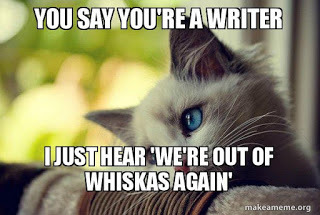 But, just sometimes, The Offer is not all it appears to be.
But, just sometimes, The Offer is not all it appears to be.
You know those men on Facebook? The ones that want to Friend you, and have a picture that makes them look like a cross between Keanu Reeves and Mark Harmon (go and Google them both, if you must, quite frankly I despair of you!) in a uniform? Well, there's a publishing equivalent.
If a publisher emails you (or, as previously mentioned and old-school, writes you a letter), and it goes along the lines of 'hello lovely Lady, you have such a pretty smile I can't help myself but write to you and want to be your friend,' BEWARE.
Although the letter will more likely go 'Dear 'AUTHOR' (sometimes they will spell your name wrongly, but this is merely a courtesy detail).
'We, here at Boggin Books, have read your submission' (which will carefully not be named here) 'and are delighted to say that we would love to publish it.'
This is the point at which you whoop, punch the air and, usually, stop reading. Sometimes you break out the gin or champagne. Someone loves your book! They want to publish it! You have practically made your first million, and you start planning your poster campaign and what you will wear to your first book launch party.
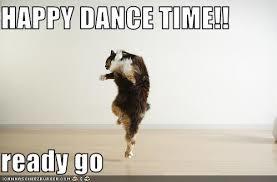
But hold hard.
Dubious people out there know how desperate authors are to be published. They will leap on your hope. Beware of ANY letter (or email) from a publisher that doesn't mention your novel by name, and also doesn't mention any kind of contract, because the follow up letter to the one I mention above, once you have confirmed your interest, will often go...
'Dear AUTHOR
We are delighted you have expressed an interest in using Boggin Publishing Services. We would ask for a small contribution towards the cost of publishing YOUR TITLE HERE, in order to maximise your reach.'
or some such.
AUTHORS NEVER PAY TO PUBLISH. Except self- published authors, of course, and they know that they are self-publishing. Don't EVER get duped into paying any money to produce your book, not for 'cover design rights' or 'for a top notch editor to work with you' or 'to have your book listed on Amazon'. Publishers, proper publishers, pay these costs for their authors. It's why they get first grabs at the money and your royalties are what's left - because they've taken the risk of publishing your book and put money into it.
 I know, but it's fair when you think about it. So, if you get an offer that you think might be too good to be true...
I know, but it's fair when you think about it. So, if you get an offer that you think might be too good to be true...
think of those widowed single dads in the US military who inexplicably want to be your friend.
...no, sorry, I can't even type it with a straight face. It is a Bank Holiday Monday, and one on which I am not at work, but far from being consumed with a desire to go for a run, I'm sitting indoors, in my pyjamas, wondering whether I can legitimately start eating chocolate at not-quite-ten in the morning. I will go for a run later but...yes, later...
So, here I am to talk to you about the next stage in your writing journey. I'm calling it 'When To Say No', but it's not some long tale about Dubious Consent (which is a whole other topic in the romance writing fraternity, regarding sexual consent - yes, cream cakes are nice, but you don't necessarily want to have one forced down your throat when you are trying to watch NCIS, and associated imagery), it's about not jumping on the first publishing offer that is sent your way.
I KNOW that when you get that e-mail (or letter, if you are old-school), your first instinct is to punch the air and leap about all demented yelling "Somebody wants to publish me!!" Of course it is! You've worked long and hard to get here! All those biscuits! All that sobbing over the keyboard while the cat stares at you!
 But, just sometimes, The Offer is not all it appears to be.
But, just sometimes, The Offer is not all it appears to be.You know those men on Facebook? The ones that want to Friend you, and have a picture that makes them look like a cross between Keanu Reeves and Mark Harmon (go and Google them both, if you must, quite frankly I despair of you!) in a uniform? Well, there's a publishing equivalent.
If a publisher emails you (or, as previously mentioned and old-school, writes you a letter), and it goes along the lines of 'hello lovely Lady, you have such a pretty smile I can't help myself but write to you and want to be your friend,' BEWARE.
Although the letter will more likely go 'Dear 'AUTHOR' (sometimes they will spell your name wrongly, but this is merely a courtesy detail).
'We, here at Boggin Books, have read your submission' (which will carefully not be named here) 'and are delighted to say that we would love to publish it.'
This is the point at which you whoop, punch the air and, usually, stop reading. Sometimes you break out the gin or champagne. Someone loves your book! They want to publish it! You have practically made your first million, and you start planning your poster campaign and what you will wear to your first book launch party.

But hold hard.
Dubious people out there know how desperate authors are to be published. They will leap on your hope. Beware of ANY letter (or email) from a publisher that doesn't mention your novel by name, and also doesn't mention any kind of contract, because the follow up letter to the one I mention above, once you have confirmed your interest, will often go...
'Dear AUTHOR
We are delighted you have expressed an interest in using Boggin Publishing Services. We would ask for a small contribution towards the cost of publishing YOUR TITLE HERE, in order to maximise your reach.'
or some such.
AUTHORS NEVER PAY TO PUBLISH. Except self- published authors, of course, and they know that they are self-publishing. Don't EVER get duped into paying any money to produce your book, not for 'cover design rights' or 'for a top notch editor to work with you' or 'to have your book listed on Amazon'. Publishers, proper publishers, pay these costs for their authors. It's why they get first grabs at the money and your royalties are what's left - because they've taken the risk of publishing your book and put money into it.
 I know, but it's fair when you think about it. So, if you get an offer that you think might be too good to be true...
I know, but it's fair when you think about it. So, if you get an offer that you think might be too good to be true...think of those widowed single dads in the US military who inexplicably want to be your friend.
Published on May 07, 2018 02:33
April 30, 2018
Those three little words...
So you've submitted your first three chapters, and you've heard those magic three words for the first time..
No, not 'I love you'. It would be odd to be hearing someone say I love you in response to submitting your novel, unless you have submitted it to your Significant Other, which would be, largely, pointless unless you are dating the head of Random Penguin or whatever they call themselves today. Plus, if you are dating the head of a random penguin, your problems may well be further reaching than I can deal with in this blog.
The three words to which I refer are 'Send. More. Please.' There is a caveat about making sure that these words refer to your words, and not, say sandwiches or cake or biscuits - it's always wise to double check, but in the event that you've heard a publisher or agent say them, and you have therefore Sent. More. Words (those words being further words of your novel, not just stray words you happened to have lying around the place), now you need to fill your time until you hear back about the satisfactory nature of those words.
This can be a hard time. You will obsess. You will have the e mail button open on your laptop at all times, and every time a new mail pings in you will open it with your heart thumping. Unless you are expecting your credit card statement, of course, in which case you will close down all means of communication and probably move to the moon. You will make bargains with Fate, wandering around muttering 'if they promise to buy the book I will never again eat four Walnut Whips in succession' and suchlike. Usually with at least one Walnut Whip in your hand.
 Unless, as previously stated, you are talking to a random penguin head.You will read books published by the publisher (or represented by the agent) and try to work out whether your work is in any way comparable. You will also eat a lot of chocolate and sleep standing up.
Unless, as previously stated, you are talking to a random penguin head.You will read books published by the publisher (or represented by the agent) and try to work out whether your work is in any way comparable. You will also eat a lot of chocolate and sleep standing up.
What you should be doing:
Apart from pledging yourself to diet off those biscuits and chocolate at the first opportunity, this is what you should do: Get Yourself On Social Media. If you haven't already got one, get a Facebook profile, get on Twitter and make yourself a blog. (What? You didn't think I was doing this for FUN did you?). Because the first thing that publisher or agent will do, on receiving your treasured manuscript is Google you. And it's all very well keeping a low profile and being all mysterious and unavailable and everything, particularly if you have either recently robbed a bank or have more injunctions taken out against you by a certain Sir Tony Robinson, but what a publisher or agent wants is someone who knows how to sell themselves.
I tried to sell myself to Sir Tony, but he returned me with the receipt and asked for his money back. I was, apparently 'not fit for purpose'. Sigh.
No, not 'I love you'. It would be odd to be hearing someone say I love you in response to submitting your novel, unless you have submitted it to your Significant Other, which would be, largely, pointless unless you are dating the head of Random Penguin or whatever they call themselves today. Plus, if you are dating the head of a random penguin, your problems may well be further reaching than I can deal with in this blog.
The three words to which I refer are 'Send. More. Please.' There is a caveat about making sure that these words refer to your words, and not, say sandwiches or cake or biscuits - it's always wise to double check, but in the event that you've heard a publisher or agent say them, and you have therefore Sent. More. Words (those words being further words of your novel, not just stray words you happened to have lying around the place), now you need to fill your time until you hear back about the satisfactory nature of those words.
This can be a hard time. You will obsess. You will have the e mail button open on your laptop at all times, and every time a new mail pings in you will open it with your heart thumping. Unless you are expecting your credit card statement, of course, in which case you will close down all means of communication and probably move to the moon. You will make bargains with Fate, wandering around muttering 'if they promise to buy the book I will never again eat four Walnut Whips in succession' and suchlike. Usually with at least one Walnut Whip in your hand.
 Unless, as previously stated, you are talking to a random penguin head.You will read books published by the publisher (or represented by the agent) and try to work out whether your work is in any way comparable. You will also eat a lot of chocolate and sleep standing up.
Unless, as previously stated, you are talking to a random penguin head.You will read books published by the publisher (or represented by the agent) and try to work out whether your work is in any way comparable. You will also eat a lot of chocolate and sleep standing up.What you should be doing:
Apart from pledging yourself to diet off those biscuits and chocolate at the first opportunity, this is what you should do: Get Yourself On Social Media. If you haven't already got one, get a Facebook profile, get on Twitter and make yourself a blog. (What? You didn't think I was doing this for FUN did you?). Because the first thing that publisher or agent will do, on receiving your treasured manuscript is Google you. And it's all very well keeping a low profile and being all mysterious and unavailable and everything, particularly if you have either recently robbed a bank or have more injunctions taken out against you by a certain Sir Tony Robinson, but what a publisher or agent wants is someone who knows how to sell themselves.
I tried to sell myself to Sir Tony, but he returned me with the receipt and asked for his money back. I was, apparently 'not fit for purpose'. Sigh.
Published on April 30, 2018 07:35
April 23, 2018
Dealing with rejection by going Full Tea Towel.
Now comes the stage in your publishing career where you have to send your book baby out into the wide world - which is why I've called this bit 'rejection'.
I know you think your book is perfect. Of course you do! You wouldn't be submitting it otherwise, would you? You think it is the shiniest thing that ever shone and it's amazing and wonderful and original and lots of other adjectives that can otherwise only apply to Lord Tony of Robinson...
 Just tell me if he isn't the most adorable thing you've seen since my appearance in the penguin onesie...So, you've got your book all shiny, and now you need to send it out to people who might just put it out into the wide world. And how do you go about that?
Just tell me if he isn't the most adorable thing you've seen since my appearance in the penguin onesie...So, you've got your book all shiny, and now you need to send it out to people who might just put it out into the wide world. And how do you go about that?
Firstly, go and buy yourself a copy of the Writers' and Artists' Yearbook. Honestly. it's full of Really Important Information like names of agents and publishers and their submission details, and, if all else fails, it makes an excellent doorstop. You can make a list, if you like, of all the agents (or publishers if you're going the direct route) that deal with the sort of book that you've just written. If you are really keen you can do a spreadsheet, but I've never really got to grips with those, and just end up with lots of little boxes which get all mangled and it looks like a wall built by someone who'd rather be knitting.
 Like this. Only with words in.And then you go online and you look up the agents and/or publishers. Their websites will have their submission guidelines - pay close attention to these. If they ask for you to send the first three chapters, then send the first three chapters and not a word more. Honestly, there's very little that annoys a publisher or agent more than people who don't read the guidelines, and you don't want to make them any more purple-faced with rage than they already are, because the publishing industry is the sort of industry that brings out the purple face of rage more readily than any other.
Like this. Only with words in.And then you go online and you look up the agents and/or publishers. Their websites will have their submission guidelines - pay close attention to these. If they ask for you to send the first three chapters, then send the first three chapters and not a word more. Honestly, there's very little that annoys a publisher or agent more than people who don't read the guidelines, and you don't want to make them any more purple-faced with rage than they already are, because the publishing industry is the sort of industry that brings out the purple face of rage more readily than any other.
You submit your work, and then you wait. And yes, it's all right to send it to more than one place at a time (although it's only polite to tell those you are sending it to that this is what you have done). Submission guidelines will tell you whether they want a covering letter, a writer's CV or a synopsis as well. Do make sure you've put it all in the envelope before you post, there's nothing worse than toddling back from the post office, or pressing the SEND button, only to find that you left out a vital piece of requested information and having to send it separately (see: Purple Face of Rage).
Now is the time to lay in a supply of chocolate, lots of biscuits, some very good friends and a vocabulary laden with invective. I'm particularly fond of 'hamfisted amateurs with the imagination of a brain dead dinosaur'. Because when your rejection comes, you will need every last, sweary, chocolate-stained word, but that's fine. Honestly. Channel your inner Malcolm Tucker. Go Full Tea Towel. (If you've never heard of Tucker's Law, then it's here but not for those who are easily offended).
Then you smile, and send it out again somewhere else. And you keep doing that.

I know you think your book is perfect. Of course you do! You wouldn't be submitting it otherwise, would you? You think it is the shiniest thing that ever shone and it's amazing and wonderful and original and lots of other adjectives that can otherwise only apply to Lord Tony of Robinson...
 Just tell me if he isn't the most adorable thing you've seen since my appearance in the penguin onesie...So, you've got your book all shiny, and now you need to send it out to people who might just put it out into the wide world. And how do you go about that?
Just tell me if he isn't the most adorable thing you've seen since my appearance in the penguin onesie...So, you've got your book all shiny, and now you need to send it out to people who might just put it out into the wide world. And how do you go about that?Firstly, go and buy yourself a copy of the Writers' and Artists' Yearbook. Honestly. it's full of Really Important Information like names of agents and publishers and their submission details, and, if all else fails, it makes an excellent doorstop. You can make a list, if you like, of all the agents (or publishers if you're going the direct route) that deal with the sort of book that you've just written. If you are really keen you can do a spreadsheet, but I've never really got to grips with those, and just end up with lots of little boxes which get all mangled and it looks like a wall built by someone who'd rather be knitting.
 Like this. Only with words in.And then you go online and you look up the agents and/or publishers. Their websites will have their submission guidelines - pay close attention to these. If they ask for you to send the first three chapters, then send the first three chapters and not a word more. Honestly, there's very little that annoys a publisher or agent more than people who don't read the guidelines, and you don't want to make them any more purple-faced with rage than they already are, because the publishing industry is the sort of industry that brings out the purple face of rage more readily than any other.
Like this. Only with words in.And then you go online and you look up the agents and/or publishers. Their websites will have their submission guidelines - pay close attention to these. If they ask for you to send the first three chapters, then send the first three chapters and not a word more. Honestly, there's very little that annoys a publisher or agent more than people who don't read the guidelines, and you don't want to make them any more purple-faced with rage than they already are, because the publishing industry is the sort of industry that brings out the purple face of rage more readily than any other.You submit your work, and then you wait. And yes, it's all right to send it to more than one place at a time (although it's only polite to tell those you are sending it to that this is what you have done). Submission guidelines will tell you whether they want a covering letter, a writer's CV or a synopsis as well. Do make sure you've put it all in the envelope before you post, there's nothing worse than toddling back from the post office, or pressing the SEND button, only to find that you left out a vital piece of requested information and having to send it separately (see: Purple Face of Rage).
Now is the time to lay in a supply of chocolate, lots of biscuits, some very good friends and a vocabulary laden with invective. I'm particularly fond of 'hamfisted amateurs with the imagination of a brain dead dinosaur'. Because when your rejection comes, you will need every last, sweary, chocolate-stained word, but that's fine. Honestly. Channel your inner Malcolm Tucker. Go Full Tea Towel. (If you've never heard of Tucker's Law, then it's here but not for those who are easily offended).
Then you smile, and send it out again somewhere else. And you keep doing that.

Published on April 23, 2018 11:30
April 15, 2018
Beta Readers - or why too many cooks might spoil your broth
Where were we? Well, in my case, mostly in Tony Robinson's shrubbery, but we'll let that go for now (or, at least have it taken into account with several other pending cases). We were at the next stage of 'how the hell do I write a book anyway', which I now realise isn't the catchiest title.
You've written it. You've re-written it and taken out all the 'just's and the 'then's and you've made sure your story has a character arc and plot development and doesn't just tell a flat story. You've also, hopefully, made sure that your heroine doesn't change eye colour half way through, or start the story coming from Latin America, widowed and owning a small boat, and somewhere along the line starts coming from Swansea with a pursuing husband and owning a small cottage in Holderness. You have checked all those things, haven't you?
I'll wait while you go back and look.
Right. So now you are at the stage of letting your book be seen by someone else. I realise you might have been tempted already to let someone have a quick read, but do try not to. That way madness lies, and I should know, because I have a holiday home there.
 It's like this. Only with more screaming.
It's like this. Only with more screaming.
If you let people look at work before you get it to the state where you think it 'might' be finished, you will find yourself getting "oooh, I love it but why don't you make him a blacksmith. Blacksmithing would be good" and so you make him a blacksmith because it does seem a good idea at the time. Then another person reads it and says "why is he a blacksmith? You need him to be a jewellery designer, so then he can design her a ring - oh, oh, I know, and then they can go on a TV show where they have to compete for this huge prize and she wins and...."and various other inputs and opinions. When you are still in the 'creating' phase, the last thing you need is opinions. You will have plenty of your own. And most of your own opinions will conflict with your other opinions so you don't want other people putting theirs in there too - we talked about madness, didn't we?
So the book is as nearly perfect as you can get it, what with your feeble eyesight and your typing it out using only a crow's beak and an old bent fork you found in the garden - oh, hang on...
...no, apparently that's only me.
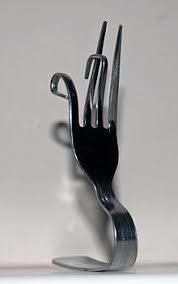 I did wonder.
I did wonder.
And what you need now is a Beta Reader. Someone to test drive your book and iron out all the little wrinkles. I did a post on beta readers a while back, and you know how I hate to repeat myself, so here's the link.
http://www.janelovering.co.uk/2016/02...
so now all you have to do is find one. You can ask on Facebook, that's always good. Just DO NOT USE YOUR MUM, all right?
You've written it. You've re-written it and taken out all the 'just's and the 'then's and you've made sure your story has a character arc and plot development and doesn't just tell a flat story. You've also, hopefully, made sure that your heroine doesn't change eye colour half way through, or start the story coming from Latin America, widowed and owning a small boat, and somewhere along the line starts coming from Swansea with a pursuing husband and owning a small cottage in Holderness. You have checked all those things, haven't you?
I'll wait while you go back and look.
Right. So now you are at the stage of letting your book be seen by someone else. I realise you might have been tempted already to let someone have a quick read, but do try not to. That way madness lies, and I should know, because I have a holiday home there.
 It's like this. Only with more screaming.
It's like this. Only with more screaming.If you let people look at work before you get it to the state where you think it 'might' be finished, you will find yourself getting "oooh, I love it but why don't you make him a blacksmith. Blacksmithing would be good" and so you make him a blacksmith because it does seem a good idea at the time. Then another person reads it and says "why is he a blacksmith? You need him to be a jewellery designer, so then he can design her a ring - oh, oh, I know, and then they can go on a TV show where they have to compete for this huge prize and she wins and...."and various other inputs and opinions. When you are still in the 'creating' phase, the last thing you need is opinions. You will have plenty of your own. And most of your own opinions will conflict with your other opinions so you don't want other people putting theirs in there too - we talked about madness, didn't we?
So the book is as nearly perfect as you can get it, what with your feeble eyesight and your typing it out using only a crow's beak and an old bent fork you found in the garden - oh, hang on...
...no, apparently that's only me.
 I did wonder.
I did wonder.And what you need now is a Beta Reader. Someone to test drive your book and iron out all the little wrinkles. I did a post on beta readers a while back, and you know how I hate to repeat myself, so here's the link.
http://www.janelovering.co.uk/2016/02...
so now all you have to do is find one. You can ask on Facebook, that's always good. Just DO NOT USE YOUR MUM, all right?
Published on April 15, 2018 02:57
Jane Lovering's Blog
- Jane Lovering's profile
- 227 followers
Jane Lovering isn't a Goodreads Author
(yet),
but they
do have a blog,
so here are some recent posts imported from
their feed.



